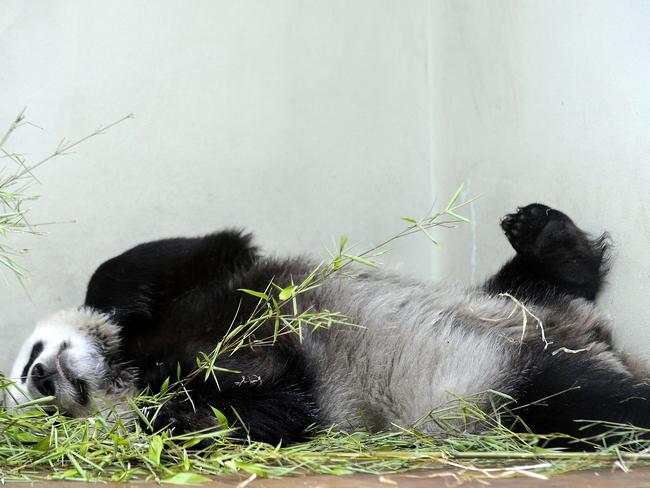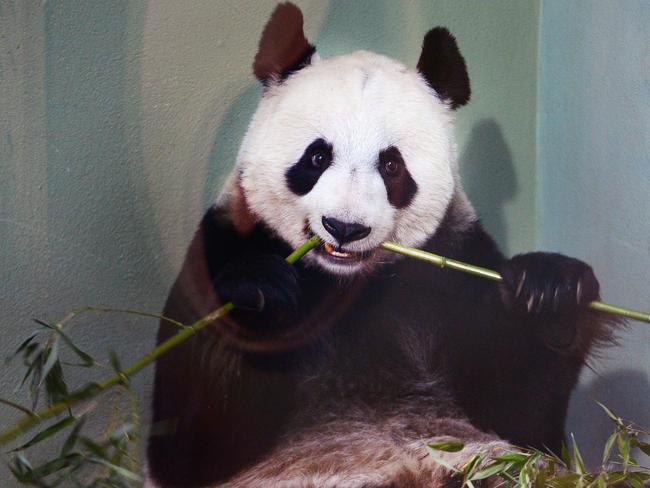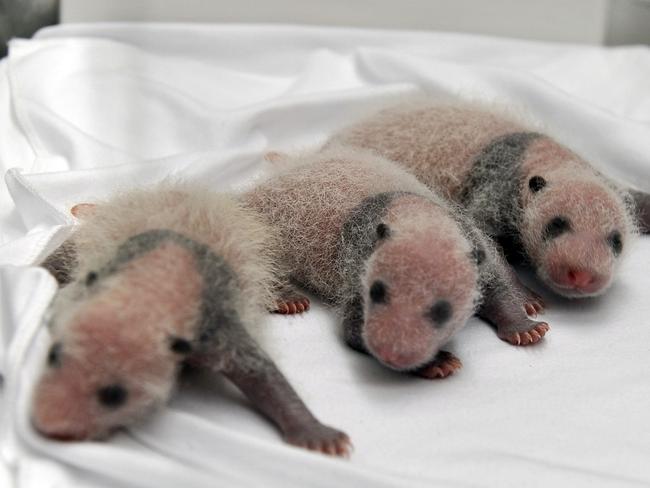Giant panda Tian Tian in Edinburgh zoo ‘pregnant’
A GIANT panda lent by China to Edinburgh Zoo could produce a hoped-for cub by the end of the month.

A GIANT panda lent by China to Edinburgh Zoo is believed to be pregnant and could produce a cub by the end of the month.
Keepers have been monitoring Tian Tian since she was artificially inseminated on April 13.
But the zoo said it was keeping its excitement in check because of the risk that Tian Tian could miscarry, having lost a cub at late term last year.
Iain Valentine, director of pandas at the zoo in the Scottish capital, said: “The latest scientific data suggests Tian Tian the giant panda is now pregnant and that implantation has taken place; therefore, she may give birth at the end of the month.
“This is all very new and complex science and we still have a bit of time to go yet, as like last year, the late loss of a cub remains entirely possible.”

Tian Tian (Sweetie) and Yang Guang (Sunshine) are the first giant pandas to live in Britain for 17 years.
The animals, now both aged 10, arrived on loan from China in December 2011 and will remain at Edinburgh Zoo for a decade.
Shortly after the pandas arrived, Scottish First Minister Alex Salmond signed trade deals with China and hailed the animals’ arrival as a source of Scottish pride.
If a cub is born, it could soon be living in an independent Scotland if Scots vote to break away from the United Kingdom on September 18.
Tian Tian was successfully inseminated last year but lost her cub at late term.

Experts have been analysing the animal’s hormone and protein levels but it will not be known for certain if she is pregnant until she gives birth.
Valentine said the latest scientific tests will give a strong indication but are “too new” to be definitive.
“Monitoring a female giant panda’s behaviour - for example, if she is sleeping a lot, eating more or spending time in her cubbing den - is not an indicator of if she is pregnant or otherwise, as giant pandas experience pseudo pregnancies and she will show ‘pregnant’ type behaviour whether she is pregnant or not.
“Two of our Chinese colleagues are due to travel to Scotland in mid-August and we continue to monitor and wait.”

Coincidentally, a Chinese zoo on Tuesday unveiled what it billed as the world’s first known surviving panda cub triplets.
Guangzhou’s Chimelong Safari Park hailed their birth as a “miracle” given pandas’ famously low reproductive rate.



